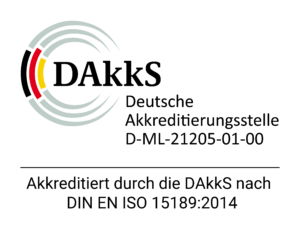FOR PHYSICIANS
SEARCH
Microdeletion 22q11.2
(DiGeorge syndrome)
Prenatal screening with the Harmony® Test for microdeletion 22q11.2 is possible from gestational week 10+0.
The proprietary DANSR assay (digital analysis of selected regions) of the Harmony® Test is able to detect about 75% of all cases with a microdeletion, including those smaller than 3 Mb at a false-positive rate of 0.5% 1.


Screening for microdeletion 22q11.2 by the Harmony® Test determines the probability for the presence of this genetic disorder. However, the test is not able to ascertain the clinical severity of the microdeletion.
In singleton pregnancies the analysis for microdeletion 22q11.2 can be added to all other test options.
As each additional test increases the overall false-positive rate of a non-invasive prenatal test 2, we recommend requesting the test option only in pregnancies with an increased risk for this microdeletion.
As in screening for trisomies, screening for microdeletion 22q11.2 can lead to false-positive results. Therefore, a report indicating a high risk for the microdeletion has to be confirmed by an invasive diagnostic procedure (array-CGH), before further actions can be taken. The positive predictive value (PPV) is about 5%, depending on the amount of fetal cfDNA in maternal blood (fetal fraction) 3.
FOR PHYSICIANS
SEARCH
Microdeletion 22q11.2
(DiGeorge syndrome)
Prenatal screening with the Harmony® Test for microdeletion 22q11.2 is possible from gestational week 10+0.
The proprietary DANSR assay (digital analysis of selected regions) of the Harmony® Test is able to detect about 75% of all cases with a microdeletion, including those smaller than 3 Mb at a false-positive rate of 0.5% 1.


Screening for microdeletion 22q11.2 by the Harmony® Test determines the probability for the presence of this genetic disorder. However, the test is not able to ascertain the clinical severity of the microdeletion.
In singleton pregnancies the analysis for microdeletion 22q11.2 can be added to all other test options.
As each additional test increases the overall false-positive rate of a non-invasive prenatal test 2, we recommend requesting the test option only in pregnancies with an increased risk for this microdeletion.
As in screening for trisomies, screening for microdeletion 22q11.2 can lead to false-positive results. Therefore, a report indicating a high risk for the microdeletion has to be confirmed by an invasive diagnostic procedure (array-CGH), before further actions can be taken. The positive predictive value (PPV) is about 5%, depending on the amount of fetal cfDNA in maternal blood (fetal fraction) 3.
Microdeletion 22q11.2
(DiGeorge syndrome)
Prenatal screening with the Harmony® Test for microdeletion 22q11.2 is possible from gestational week 10+0.
The proprietary DANSR assay (digital analysis of selected regions) of the Harmony® Test is able to detect about 75% of all cases with a microdeletion, including those smaller than 3 Mb at a false-positive rate of 0.5% 1.


Screening for microdeletion 22q11.2 by the Harmony® Test determines the probability for the presence of this genetic disorder. However, the test is not able to ascertain the clinical severity of the microdeletion.
In singleton pregnancies the analysis for microdeletion 22q11.2 can be added to all other test options.
As each additional test increases the overall false-positive rate of a non-invasive prenatal test 2, we recommend requesting the test option only in pregnancies with an increased risk for this microdeletion.
As in screening for trisomies, screening for microdeletion 22q11.2 can lead to false-positive results. Therefore, a report indicating a high risk for the microdeletion has to be confirmed by an invasive diagnostic procedure (array-CGH), before further actions can be taken. The positive predictive value (PPV) is about 5%, depending on the amount of fetal cfDNA in maternal blood (fetal fraction) 3.


